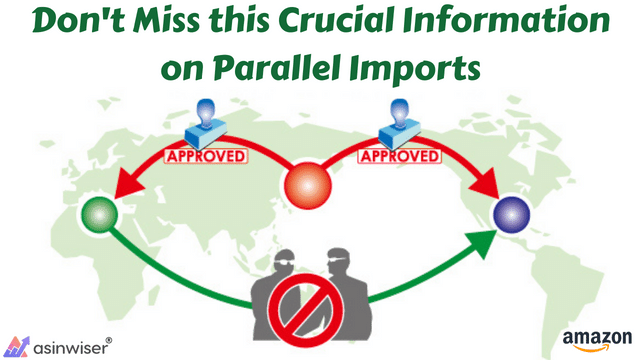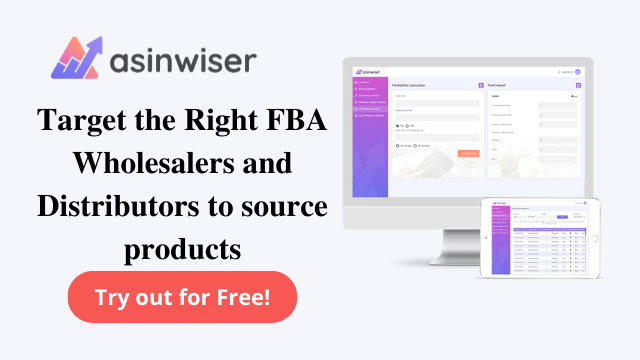
Don’t Miss this Crucial Information on Parallel Imports
Don’t Miss this Crucial Information on Parallel Imports
The gray market concern of parallel importing, its legality, and how it affects the original brand are all discussed in this article.
A parallel import is a product imported and traded outside of the brand’s approved channels of distribution. It is now on the gray market rather than the white market.
Electronics, books, publications, software, accessories, cars, and various other items are all susceptible. Unless local courts rule otherwise, it is generally not criminal. A reseller based in the EU, for example, may discover that they can purchase recently launched Nike shoes at a lower price outside the EU. So they go to an authorized dealer in another country to get the shoes. Because Nike already has a licensed product for the EU, marketing these shoes in the EU would be a parallel import.
It’s critical to understand that parallel imports are not fakes or counterfeits. The Nike shoes are authentic, and the reseller bought them from a licensed retailer. It’s merely from another country, and it’s no longer under Nike’s authority.
Is parallel importing against the law?
The first sale doctrine states that when goods are sold for the first time, a brand’s right to distribute them is given up or exhausted. Where and when can a buyer, on the other hand, resale items?
The first sale doctrine generates two concepts: national exhaustion and international exhaustion. The very first sale doctrine only relates to commodities in one country under national exhaustion. That means Nike must sell its latest brand in nation X before any other country X merchant can. It doesn’t matter if Nike releases it in countries Y and Z; if country X has national exhaustion restrictions, Nike retains distribution control in that country. However, if country X has international exhaustion rules, Nike submits its ability to regulate distribution in that country when they release a new product in any other country.
Examples of parallel importing
Omega, a Swiss watchmaker, sued Costco, a US store, in 2015 for auctioning its Seamaster watch unauthorized license. Costco is one of the country’s largest shops, selling everything from gold to lasagna. Omega had copyrighted a particular etching on the watch. Costco purchased 117 watches from an approved store in another nation and sold them 35% cheaper than MSRP. Costco’s right to resale the watches was upheld by US courts since they were obtained through an authorized method (even though it wasn’t in the US).
The international exhaustion rule was utilized in this case. As a result of this concept, Omega’s licensing rights for the new watch in the United States were exhausted when they sold the engraved Seamaster outside of the country. Costco had the legal right to resale the timepieces in the United States.
Costco would have had to buy the watches from a US channel before selling them if the national exhaustion principle had been upheld. This isn’t the first time Costco has experimented with parallel imports. Costco sells Citizen and Seiko watches, but they are not designated as authorized dealers for these brands. All Citizen watches come with a five-year warranty; however, Costco cannot expand this to the customer.
Parallel imports can happen when there are two different versions of the same product. For example, Top Gear Magazine is distributed in both Australia and the United Kingdom. Both are intended for their different markets, although the UK version is offered in Australia by unlicensed dealers.
Parallel imports are occasionally more costly than their counterparts. This was the case when unauthorized European sellers imported Sony PSPs from Japan a year before the product’s European launch. Because these merchants possessed the only supply of PSPs at the time, they could demand a more excellent price than the release price.
The Drawbacks of parallel imports
A company that sells a parallel imported item is not the manufacturer’s authorized dealer. This also means they won’t be able to produce a manufacturer’s warranty. In some cases, such as novels or cosmetics, it may not be a significant concern for the consumer. This can, however, be an issue with gadgets, watches, and software.
Purchasing a new laptop without a guarantee is a hazardous proposition. In this case, a vendor may provide a third-party warranty. However, if something goes wrong, the customer has no redress with the actual manufacturer. When you’re out shopping, keep an eye out for different sorts of warranties. A new item with a third-party warranty is a dead giveaway that it’s a parallel import.
There may not be much you can do to prevent your items from being parallel imported because parallel imports are approved on a jurisdiction-by-jurisdiction basis. The national exhaustion rule is followed by a number of countries. Importing non-authorized products is prohibited in numerous places because the manufacturer has approved the product’s only importers. One of these countries is Brazil.
Many countries, however, adhere to the international exhaustion norm. Once your item is ready on the global market, consumers can purchase it and resell it in these nations. Parallel import limitations differ by location. Therefore we recommend speaking with a local lawyer to learn more about the legislation in your area.
An intelligent software tool—Asinwiser— is what you need as an Amazon. It is an impeccable solution for all your needs, including product research, competitor research, fba calculator and profitability calculator.
- Tags: Parallel import
Share this:
Subscribe to Our Newsletter
Recent Post
- Top 13 Amazon Inventory Management Tools for FBA Sellers in 2023
- Asinwiser: The Ultimate OMSGuru Alternative for Amazon Sellers
- Repricer.com Alternative: Why Asinwiser is the Superior Choice for Amazon Sellers
- Aura Alternative: Why Asinwiser is the Superior Choice for Amazon Repricing
- Maximize Amazon Sales with Asinwiser: The Superior Amazon Repricer & Revenue Analytics Tool
